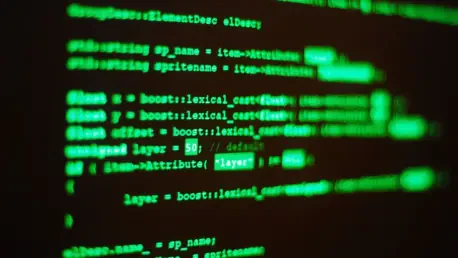Imagine you’re working on a critical project, and a simple misstep with your file operations sends hours of work into oblivion, all due to a fundamental mishandling of system file settings. Developers around the world can relate to this scenario, especially when operating on the Windows platform. The delicate balance between security and convenience in file operations often presents a tricky conundrum for developers, where one wrong move could spell disaster.
Importance of Secure File Operations
Secure file operations are imperative for maintaining software stability and safeguarding against potential threats. Without stringent security practices, the risk of accidental file deletions or manipulation of sensitive data increases dramatically. This might not only jeopardize the entire application but could also expose vulnerabilities for malicious exploits. Developers frequently encounter these risks when conducting file attribute operations that aren’t properly safeguarded.
Examining Java 25’s Key Updates
Java 25 introduces a much-needed overhaul of file handling processes, with the File.delete method now elevated to prevent the deletion of read-only files. Previously, developers faced the quirk of this method bypassing the read-only attribute, leaving systems vulnerable to unintended corruption. Additionally, operations involving paths with trailing spaces, which often resulted in erratic behavior, are now more consistent. Java developers who previously struggled with unpredictable operations due to misleading path acceptance can now operate with greater assurance.
Insights and Developer Experience
Members of the Java development team have highlighted the importance of these updates in fostering a consistent environment across platforms. As one member noted, “Ensuring predictable behavior in file operations helps prevent the cascading failures we’ve all experienced.” A developer shared how the prior system resulted in repeated debugging sessions, each an unexpected journey that consumed valuable time and effort. Research confirms that such consistency not only enhances productivity but also shields projects from common pitfalls associated with file handling errors.
Adapting to Java 25’s File Handling Changes
Adjusting to these updates calls for developers to take actionable steps, such as managing read-only attributes with the foresight that Java now requires. Developers are urged to leverage the system property -Djdk.io.File.allowDeleteReadOnlyFiles=true where necessary to maintain compatibility during transition periods. Best practices should also include guidelines on path naming conventions to prevent unanticipated errors—steps that align with the principle of ensuring robust file operations.
In unveiling Java 25, these changes were pivotal in shaping a more resilient and reliable development framework on Windows systems. As the digital landscape evolves, such enhancements ensure a safer and more dependable environment, opening new possibilities for developers to innovate without the fear of system failures.









